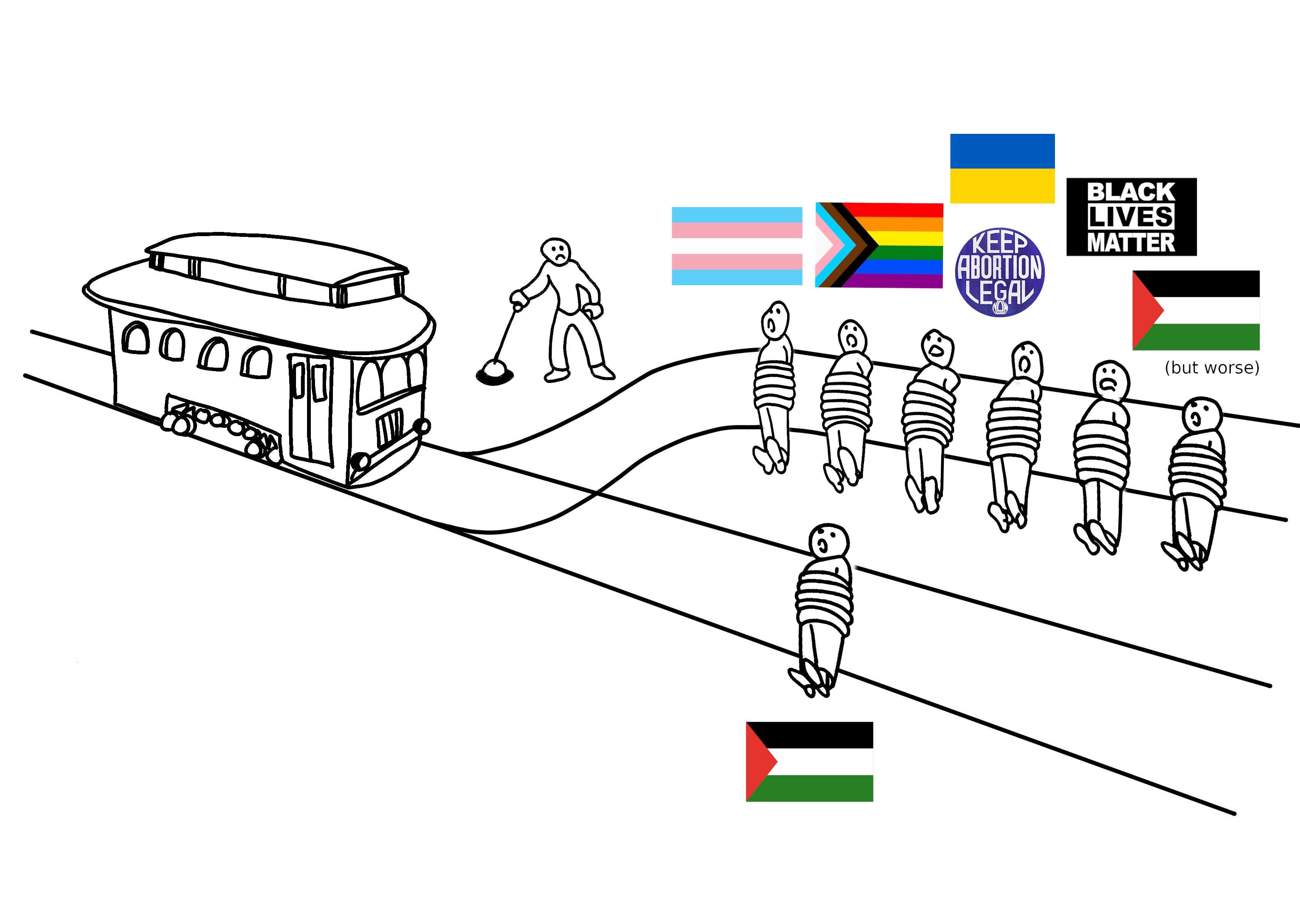this post was submitted on 26 Oct 2024
876 points (89.3% liked)
Political Memes
6173 readers
3188 users here now
Welcome to politcal memes!
These are our rules:
Be civil
Jokes are okay, but don’t intentionally harass or disturb any member of our community. Sexism, racism and bigotry are not allowed. Good faith argumentation only. No posts discouraging people to vote or shaming people for voting.
No misinformation
Don’t post any intentional misinformation. When asked by mods, provide sources for any claims you make.
Posts should be memes
Random pictures do not qualify as memes. Relevance to politics is required.
No bots, spam or self-promotion
Follow instance rules, ask for your bot to be allowed on this community.
founded 2 years ago
MODERATORS
you are viewing a single comment's thread
view the rest of the comments
view the rest of the comments

These are all sort of parody to begin with but the purpose of the trolley dilemma isn't about the results of the lever switch, it's about approaching complicity and participation in a system that creates this kind of immoral choice.
But if you have a choice between lots of violence and less violence isn't it immoral not to try and at least minimize the violence that you have to no power to stop?
I mean that's why I referred to this as a parody: the point is with the trolley dilemma is that you're being forced to participate in an immoral choice (the lever), not just that the lever applies or absolves the user from a moral liability.
A major part of the exercise is that the choice seems simple to flip the switch as plain harm reduction, but that people change their calculus the moment the single victim has a personal connection: (it is their parent, spouse, child being killed instead of the other 5 strangers.)
The forced immoral act (killing) ceases to be the moral quandry and instead harm reduction is the level of personal connection and culpability that people begin to weigh.
Since these memes tend to portray the trolley effectively running down both tracks with one outcome, the whole premise is kind of defeated.
It depends if you have to participate in the violence to minimize it.
For example, take a public shooter who disabled a police responder. Does a nearby citizen have an obligation to seize the cops gun and attempt to stop the shooter? Should they be shamed if they do nothing and hide? Is that choosing to allow violence or choosing not to be a part in it?
Natural disasters happen, accidents happen, and people regularly stop and help. I would be surprised if someone didnt in those situations.
There's the additional risk of being shot in your example, so I'd reckon that less people would try to take the gun in this case compared to the trolley problem.
Theres also risk that you would get hurt helping in the other examples I gave.
Also a random by stander would have no idea what flipping a switch would do, it could derail the train and kill more than are on either track.
The situation in the trolley problem isnt realistic, and it definitely isnt simple or settled. Its an interesting thought experiment though.
The trolley problem implies that the bystander knows what flipping the switch would do though? Same as the US election, since I doubt that Democrats would start actively oppressing trans people or women (unless they start compromising on issues).
Something Democratic politicians are completely unknown to do.
Right.
Right?
Right?!
...